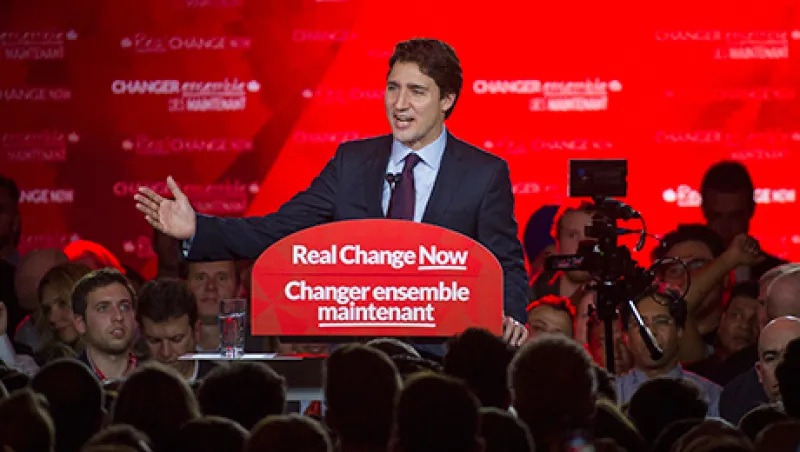
Canada’s Election Upset Signals an End to Austerity
The decisive victory over the long-ruling Conservatives by Justin Trudeau’s Liberals will probably bring more economic stability than turmoil.
Lila MacLellan
October 28, 2015


